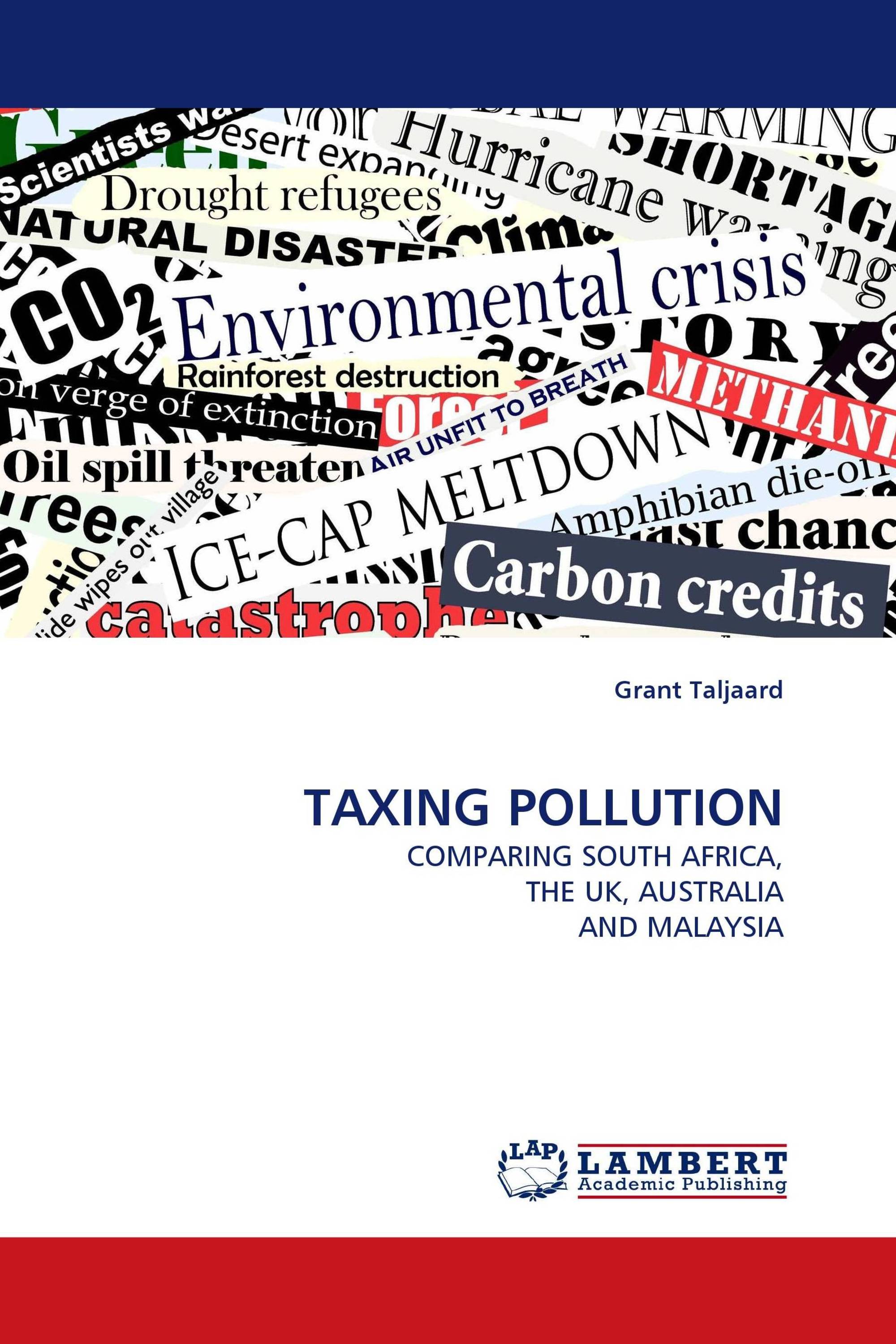TAXING POLLUTION
COMPARING SOUTH AFRICA, THE UK, AUSTRALIA AND MALAYSIA
LAP Lambert Academic Publishing ( 2010-02-11 )
€ 49,00
Both tax incentives and penalty measures are effective in raising revenue and changing behaviours. However, to answer the question, how a government should go about in applying environmental taxes and incentives, it is apparent that a wide basis of participation is necessary. Consequently, allowances and incentive measures should not only be available for the select few taxpayers in industries producing energy or wastes, but should be provided to all persons who alter their behaviour to benefit the environment. Similarly, penalties and taxes should not prejudice specific industries or persons but should penalise all types of behaviour and consumption that causes pollution. The simplest way to provide tax benefits to all persons is through indirect taxes. It is evident that indirect taxes are applied as punitive measure to curtail polluting. Moreover, pollution tax is a good way for the fiscus to earn revenue. Nevertheless, when such taxes tax are effective, that specific pollution tax''s contribution to total revenue will reduce, thus if reliance is to be placed on the revenues from pollution taxes, such taxes will have to increase over time.
Book Details: |
|
|
ISBN-13: |
978-3-8383-4558-1 |
|
ISBN-10: |
3838345584 |
|
EAN: |
9783838345581 |
|
Book language: |
English |
|
By (author) : |
Grant Taljaard |
|
Number of pages: |
100 |
|
Published on: |
2010-02-11 |
|
Category: |
Taxes |




